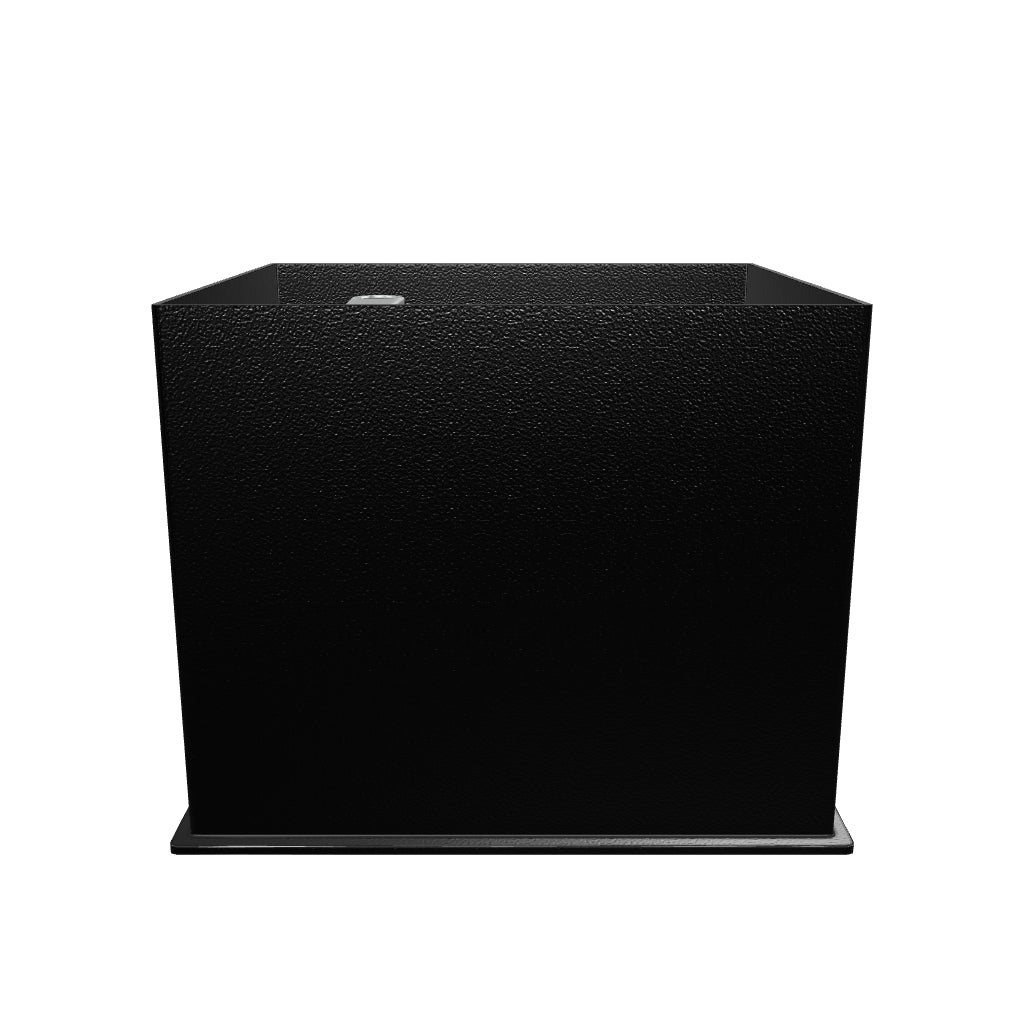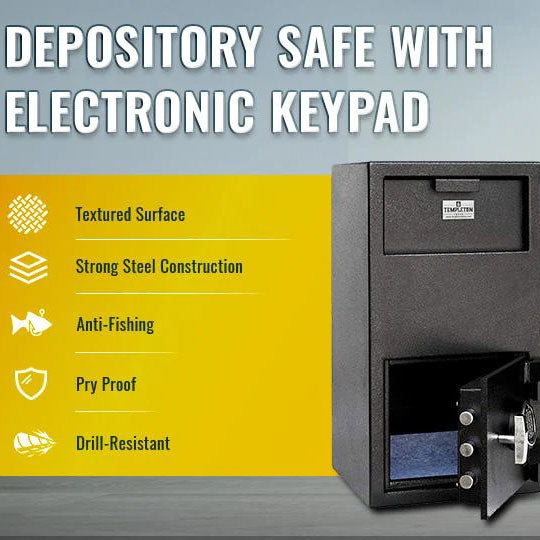How to Buy a Safe for Home: 4 Factors to Consider
When it comes to home security, a safe is one of the best investments you can make. Whether you're looking to protect valuable documents, jewelry, or firearms, a home safe offers peace of mind, knowing your items are secure. However, choosing the right safe can be a bit overwhelming with so many options available. In this article, we’ll walk you through the home security safe essential guidelines and the four most important factors to consider before purchasing a safe for your home.
1. Size and Storage Capacity
One of the first things to consider when buying a safe is its size. You want to choose a safe that is large enough to store all your valuable items but not so large that it becomes inconvenient to place or access.
Assessing Your Storage Needs
Start by taking inventory of the items you want to store in the safe. Consider the types of things you’ll be storing, such as documents, jewelry, cash, or firearms, and whether you might need additional space in the future. It's important to think about not only the current value of your items but also how your needs may change as you acquire more valuables over time.
For example, a safe that fits important paperwork, passports, and small electronics may only need a few cubic feet of space. On the other hand, if you’re storing larger items like firearms or large quantities of jewelry, you may need a larger, more robust safe.
Space Considerations
When considering where to place your safe, also think about how much space you have in your home. A small, fireproof safe can be tucked away in a closet or hidden under a desk, while a larger safe will require a more permanent installation, perhaps in a basement or a secured room. Keep in mind the weight of the safe as well, as larger safes can be quite heavy, and you’ll want to ensure the floor can support it.
2. Locking Mechanism
The locking mechanism is another crucial factor to consider when choosing a safe. Safes come with various types of locks, including combination locks, digital keypads, biometric scanners, and traditional key locks. Each type has its own pros and cons, depending on your security needs and preferences.
Combination Locks
A combination lock is the traditional locking mechanism that many people are familiar with. It requires turning a dial to the correct combination to open the safe. While they are reliable and often cheaper, they can be slower to open, especially in high-pressure situations.
Digital Keypad Locks
Digital keypads are another popular choice. They are fast to operate and allow you to set a custom PIN for quick access. Many digital locks also have the option of an override key in case the battery dies, ensuring you're not locked out. If speed and ease of access are important to you, this might be the best option.
Biometric Locks
For those looking for the highest level of security and convenience, biometric locks, which scan your fingerprint, are an excellent choice. They offer quick access and are nearly impossible to bypass without the correct fingerprint. However, they tend to be more expensive than traditional locking mechanisms.
Key Locks
While key locks are the most basic type of lock, they offer simplicity and reliability. The main downside is that you’ll need to keep track of the key, and they may not be as secure as combination or biometric locks. They’re often found in smaller safes or lockboxes.
3. Fire Protection
One of the biggest reasons to buy a home security safe is to protect your valuables from fire damage. Fires can happen unexpectedly, so it’s crucial to invest in a safe that offers both fire protection.
Fireproof Safes
Fireproof safes are specifically designed to protect documents, electronics, and other valuables from extreme heat and flames. The level of fire protection varies depending on the safe, with some models offering protection for up to 30 minutes, while others can withstand heat for hours. The fireproof rating of a safe is usually indicated in terms of time (e.g., “1 hour fire rating”), which tells you how long the safe can resist high temperatures.
4. Security Features and Ratings
The primary purpose of a safe is to protect your valuables from theft, so it's essential to understand the security features and ratings that can affect the effectiveness of your safe.
Burglary Ratings
Many safes come with burglary ratings that assess how resistant they are to forced entry. These ratings, usually determined by independent testing organizations, range from B-rated (the lowest level) to UL 350 (the highest level), indicating how much time it would take for an average burglar to break into the safe. A higher rating typically means more robust construction and greater security, but it also comes with a higher price tag.
Construction Material
The material of the safe's construction plays a significant role in its overall security. Steel is the most common material used for safes, with thicker walls providing better protection against attacks. Some high-end safes have reinforced steel or composite materials to make them even more secure. When shopping for a safe, always pay attention to the thickness and material of the safe’s walls.
Mounting Options
Some safes can be bolted to the floor or wall, making them harder for thieves to remove. If you plan on installing your safe in a specific location, consider one that offers mounting options. This will make it significantly more challenging for intruders to carry off the safe.
Why Choose Templeton Safes for Your Home Security Needs?
When it comes to securing your home and valuables, Templeton Safes is your trusted partner. With a wide range of safes to fit every need, you can rest assured that your possessions are in good hands. From fireproof to biometric and traditional locks, Templeton Safes offers reliable, high-quality solutions for every security requirement.
Whether you're looking to store important documents, jewelry, firearms, or electronics, Templeton Safes provides a variety of sizes and types designed to meet your specific needs. Their burglary-rated safes ensure maximum protection from unauthorized access, while their fire and water-resistant models safeguard your items from the unexpected.
With excellent customer service, expert advice, and fast delivery, Templeton Safes is the go-to choice for anyone serious about protecting their home and valuables. Explore the full range today at TempletonSafes.com and find the perfect safe for your peace of mind.
Templeton Safes — Trustworthy, Secure, and Built to Last.
Choose the Right Safe for Your Needs
Investing in a home safe is an excellent way to protect your most valuable possessions, whether from fire, theft, or water damage. When purchasing a safe, remember to consider the size, locking mechanism, fire and water protection, and security features. By carefully evaluating these factors, you can ensure that the safe you choose is the best option for securing your valuables.
By following these home security safe essential guidelines, you’ll be well on your way to making a safe choice that meets your needs and gives you peace of mind.






























